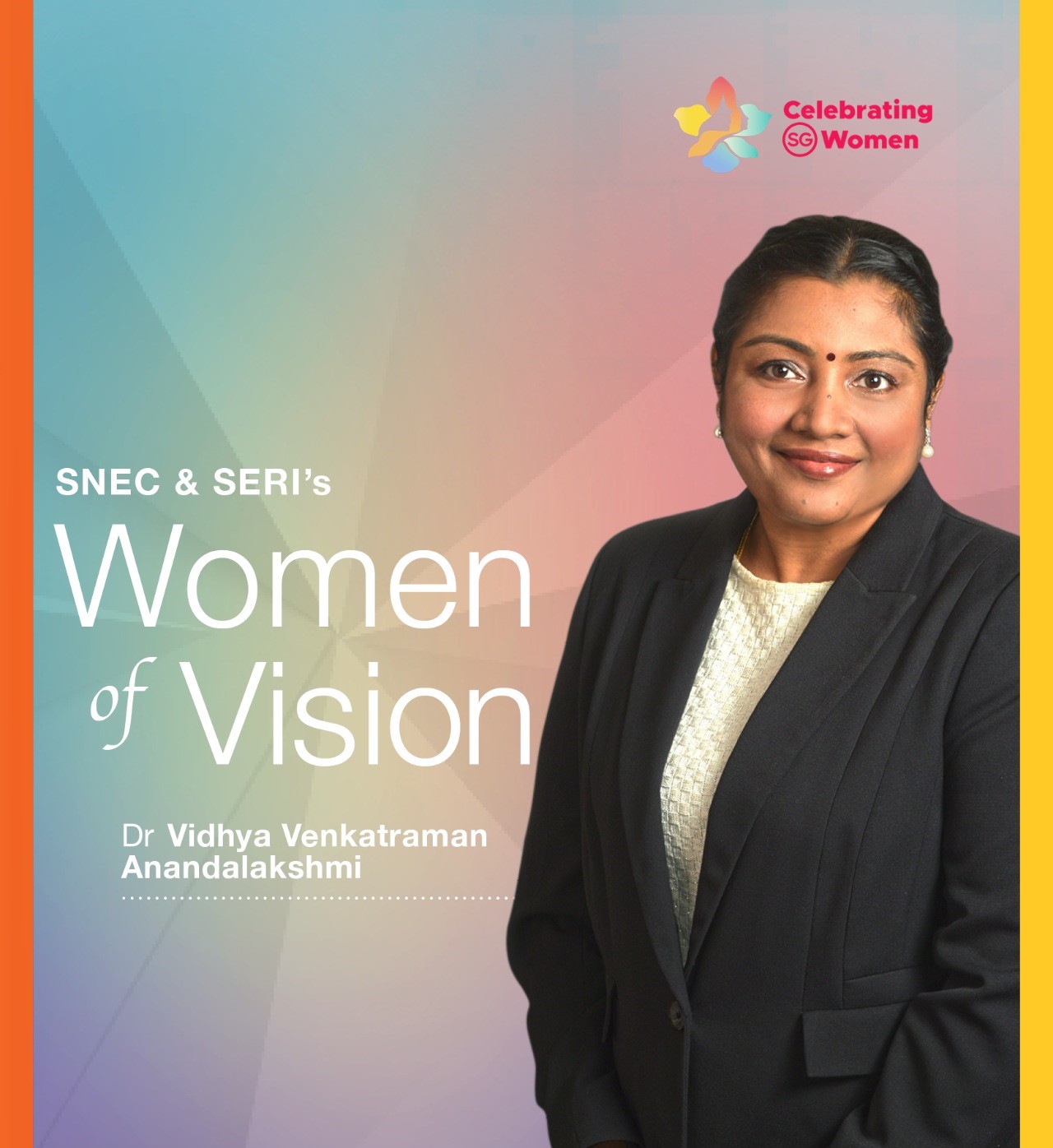Women of Vision
Celebrating SG Women
In the Year of Celebrating SG Women, we present stories which showcase and celebrate women’s multi-faceted contributions and progress at SNEC and SERI.
Join us to honour and acknowledge our team of amazing women who have made impact in the field of Ophthalmology, inspiring those around them with their brand of ethos in life.

Dr Vidhya Venkatraman Anandalakshmi
Research Fellow I, Tissue Engineering & Cell Therapy, SERI
Why did you choose to become a researcher?
I’ve always been curious and inquisitive, right from a very young age. And having my curiosity satisfied, no matter how complex or important the problem, made a deep impression on me about research. Growing up in an agrarian society offered me countless opportunities to acquire new information, new understanding, new facts, and new ways to improve our lives. That’s why I chose to pursue Biological Science, where research opportunities are endless.
How has family support helped you get to where you are in SERI?
Growing up in a very close-knit family, my parents and siblings helped and supported me in every possible way to achieve academic success right from my school days. When I got married and moved to Singapore, my husband and in-laws were supportive of my research ambitions. My in-laws even stayed with us and took care of my eldest child, allowing me to chase my dreams without worrying about household chores. My husband encouraged me to pursue my PhD; my mother moved in to live with us and helped to manage the household and the baby while I was busy with my experiments and thesis. I believe such family support is essential for all working women, especially for those in Science, technology, engineering and mathematics (STEM). This family support system will encourage more girls to pursue a career in STEM, and prevent talented women scientists and researchers from quitting their jobs.
What are your biggest achievements till date?
I am immensely proud to be the first person in my family to graduate with a PhD in Science, but I consider my proudest academic and career achievement as progressing from being a Research Assistant to a Research Fellow over my 14 years at SERI. Within the first few months of joining SERI, I had an opportunity to contribute to SERI’s first Nature Genetics paper. Another achievement that remains close to my heart is winning the runner-up title in the national Three Minute Thesis Competition in 2017. The competition gave me the floor to pitch the objective and the scope of my PhD work to many scientific and non-scientific audience. Also, my team won the runner-up title at Merck’s 350th-anniversary Innovation Cup.
In five to 10 years, what do you hope to accomplish in terms of your work?
I am currently focused on a gene therapy approach to treat Fuchs' dystrophy and other genetically inherited diseases affecting the cornea. The therapy would hopefully lead to a non-invasive treatment to improve and restore the vision of such patients. I am committed to returning the favour to the people who supported my dreams and were there for me when I needed them the most.
